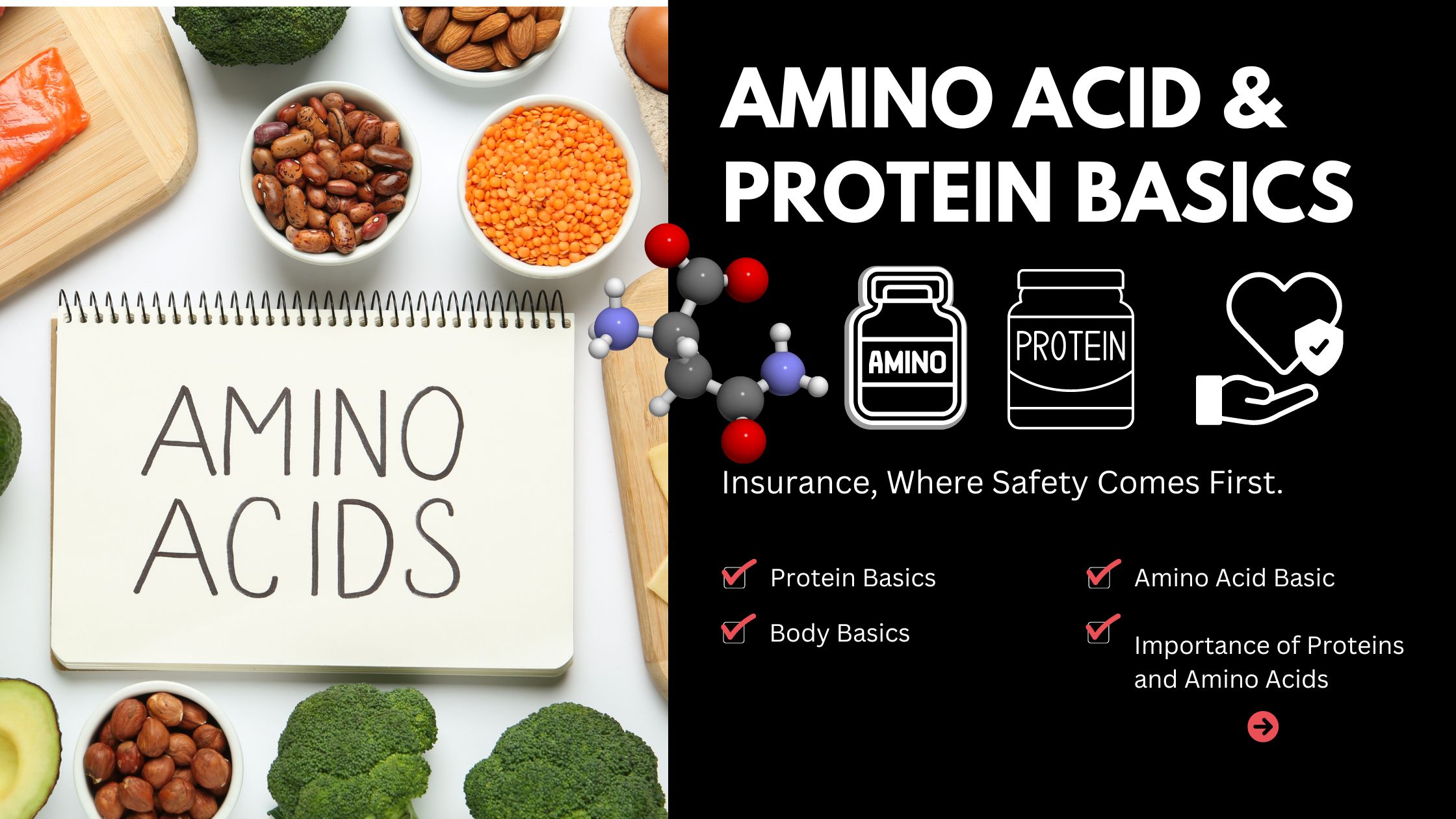
Amino Acids and Proteins: Understanding the Building Blocks of Life
Protein Basics: Proteins are long linear polymers (polypeptides) built from strings of 20 different alpha-amino acids. These large organic compounds are arranged in a linear chain and joined together by peptide bonds between the carboxyl and amino groups of adjacent amino acid residues. Proteins are chemically constructed from only amino acids (carbon, hydrogen, nitrogen, oxygen, and sometimes sulfur). These "building blocks" are what distinguish proteins from carbohydrates and fats. All proteins are linear and unbranched polypeptides.
Amino Acid Basics: In biochemistry, an amino acid is a molecule containing both amine and carboxyl functional groups. Amino acids are chemically constructed from carbon, hydrogen, nitrogen, oxygen, and sometimes sulfur. They can be single (single amino acid) or connected to many other amino acids, forming short polymer chains called “peptides” and longer chains called polypeptides.
Key Facts:
- All proteins are made from amino acids.
- Amino acids are not always part of proteins.
Body Basics: In the body, all ingested proteins are broken down into their various amino acid components. These amino acids are not stored but keep circulating until used or excreted. Amino acids can be used to build protein, form one of the 40,000 “amino acid complexes,” convert to glucose and used as fuel, or be secreted as waste. Unlike other caloric nutrients, proteins and amino acids are not stored (use them or lose them). This is why it's vital to consume all the required essential amino acids daily.
Importance of Proteins and Amino Acids: Proteins are a major functional and structural component of all cells in the body. They are crucial for muscles, hormones, enzymes, the immune system, and more. The body makes protein from 20 different “free amino acids” through a process called translation, which involves adding amino acids step-by-step following the genetic code from an mRNA to a growing protein chain.
Caloric Nutrients: The “Caloric Nutrients” supply the direct and indirect source of glucose, the metabolic fuel used by our body. The three sources of caloric energy are proteins, carbohydrates, and fats. Eighteen of the 20 “Proteinogenic Amino Acids” are “Glucogenic Amino Acids” and provide energy, vital in the absence of carbohydrates and during fasting.
Food Proteins: All usable amino acids in our food originate as protein. Eight of the 20 essential amino acids cannot be made in the body and must be ingested from food. These essential amino acids are valine, leucine, isoleucine, threonine, methionine, phenylalanine, tryptophan, and lysine. Six amino acids are conditionally essential, meaning they must be supplied externally because they are not synthesized in adequate amounts by some groups of people.
Functions of Amino Acids: Amino acids are essential to life, playing a role in metabolism and nutrition. About 75 percent of the human body is made up of amino acids, making them vital to how our system functions. They help combat depression, anxiety, ADD, weight loss, and much more.
Amino Acid Enemies: Amino acids (and proteins) face “enemies” daily in the form of glucose molecules, sugars, and similar chemicals known as aldehydes. These “glycating agents” can attach themselves to amino acids, leading to the formation of Advanced Glycation End-products (AGEs), which can cause various health issues.
Bottom Line: We must consume essential amino acids daily. When we don't have the time for a balanced meal or our body needs more of certain amino acids, supplements can be the answer.
Expert Insight: Dr. William Sheppard, D.Sc. (DrBill), an expert in nutrition and dietary supplements, promotes the use of herbs and nutrients (welltrients) along with a healthy lifestyle to enhance longevity and wellness.
Our Welltrients and Colloids products offer health-conscious consumers a single convenient powerful formula of nutrients in the proper dosages to address specific health concerns. See all our Natural Supplements and Colloids for Life products. For an excellent source of amino acids, see our Nite MGR product.









